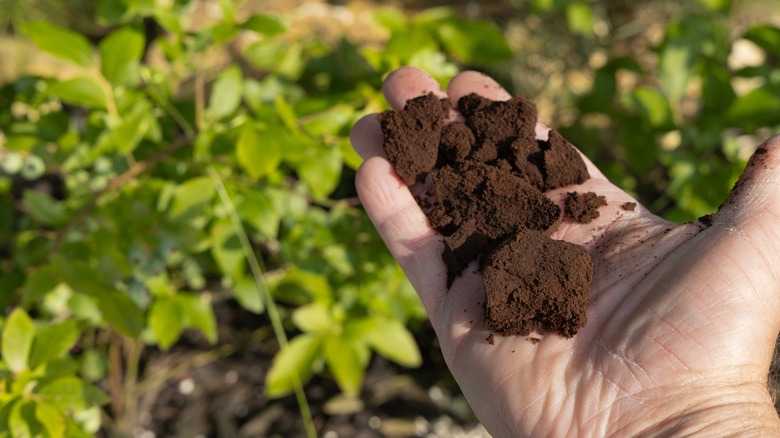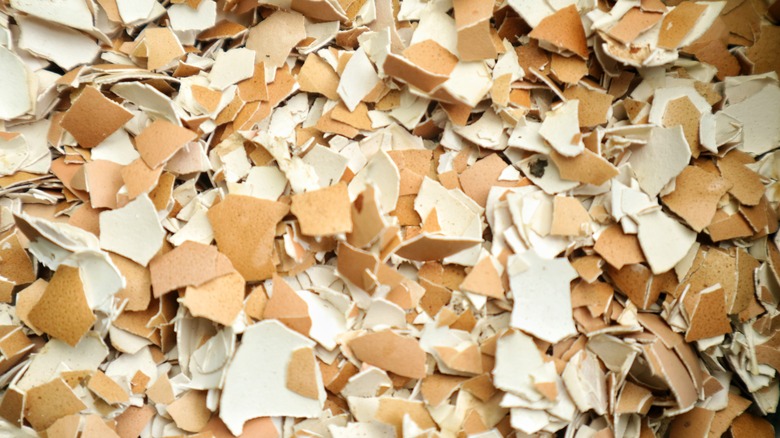The Tempting Health Supplement You Should Never Use As Fertilizer
It's no secret that providing your garden with extra nutrients can be helpful for producing lush foliage, bright blooms, and tasty fruits and veggies. Tomatoes in particular need lots of nutrients to grow—calcium among them. Calcium is great for plants; it strengthens them against pests and disease. Tomato plants that don't get enough calcium can wind up with blossom-end rot, a nutritional deficiency that results in the base of your fruit developing a nasty brown coloration.
But is using your old calcium supplements in your garden the way to go? In some cases, you can use human-grade products in your backyard. Aspirin is a common medicine you can use in your vegetable garden, for example. But while it's understandably tempting, it turns out, using calcium tablets to feed your tomatoes could do more harm than good due to the concentrated nature of supplements—and it could event hurt other plants and animals that frequent your yard.
Why you shouldn't use calcium supplements in the garden
One thing to always consider when shopping around for garden fertilizers is the concentration of nutrients in what you're planning on giving to your plants. It's also important to take note of the pH of your soil—something that can be easily done with a simple soil test. Common types of calcium used in store-bought fertilizers include calcium nitrate, which has 19% concentration of calcium, and calcium carbonate (also known as lime), which has 40% concentration. However, it's more common that calcium dietary supplements contain calcium carbonate, which has 40% concentration in one tablet.
That high concentration makes it easy to over-fertilize your plants. That's why, sometimes, showering your plants with nutrients is actually a bad idea. Putting one calcium supplement tablet in the ground could lead to over-saturation of the mineral in one small area, which could harm your plant, livestock and wild animals that may happen upon your garden.
In addition, too much calcium can lead to something called "nutrient lockout," in which a plant is unable to absorb other types of necessary nutrients such as magnesium, potassium and iron. Some studies show excess calcium can even exacerbate blossom-end rot symptoms.
Alternative calcium fertilizer solutions
If your plant is lacking calcium, there are many other ways to supplement the soil—without turning to store-bought fertilizer. Crushed egg shells are a popular natural garden additive that can bring calcium to your plants as they dissolve. You can add egg shells to your compost or spread them in a thin layer over the top of the soil around your plant. You can also try seaweed, which is often available at gardening stores. After rinsing the seaweed well, steep it in a bucket of water for several weeks. Once you've strained out the seaweed pieces, you can use the calcium-rich water to nourish your plants.
Finally, try lime; but not the little green citrus fruits. Lime is short for limestone, which can also help neutralize acidic soil. You can find limestone at garden stores. Spread it evenly over the soil or mix it into new soil before planting. Keep in mind that calcium toxicity, often linked to the use of lime fertilizers, can also harm cats and dogs. Still searching for ways to help your tomatoes grow big and strong? Here's how to determine the best fertilizer for healthy tomatoes.


